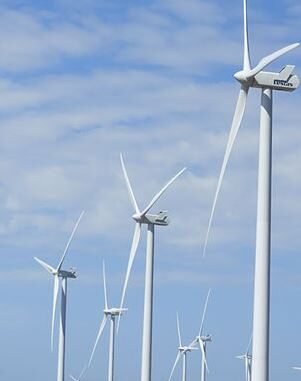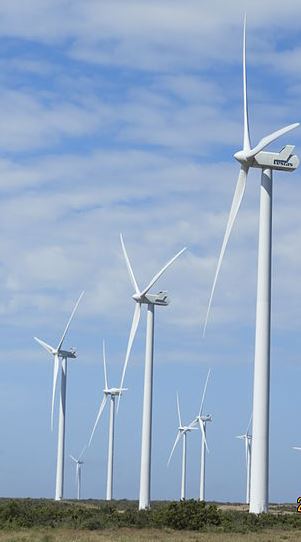
DAVOS-KLOSTERS, Switzerland, January 12, 2020 (ENS) – This year’s annual meeting of the World Economic Forum will call on corporations to raise their ambitions for climate action under the theme Stakeholders for a Cohesive and Sustainable World. The meeting’s 50th edition, opening January 21 and running for four days in Davos-Klosters, will bring together over 3,000 participants from throughout the world.
Young climate activists, including Swedish climate activist Greta Thunberg, 17, will be attending the World Economic Forum this year in an effort to convince world leaders to end the fossil fuel economy.

“We demand that at this year’s Forum, participants from all companies, banks, institutions and governments immediately halt all investments in fossil fuel exploration and extraction, immediately end all fossil fuel subsidies and immediately and completely divest from fossil fuels,” wrote Thunberg and other young climate activists in an opinion piece in “The Guardian” newspaper on January 10.
“We don’t want these things done by 2050, 2030 or even 2021, we want this done now – as in right now,” they wrote.
Since the 2015 Paris Agreement on climate, 33 major global banks have collectively poured US$1.9 trillion into fossil fuels, according to a March 2019 report, “Banking on Climate Change” by six nonprofit organizations and endorsed by over 160 organizations around the world.
Released by Rainforest Action Network, BankTrack, Indigenous Environmental Network, Oil Change International, Sierra Club, and Honor the Earth, the report reveals that 33 global banks have provided US$1.9 trillion to fossil fuel companies since the adoption of the Paris climate accord at the end of 2015. The amount of financing has risen in each of the past two years.
Of this total, $600 billion went to 100 companies that are most aggressively expanding fossil fuels. The report shows that the business practices of the world’s major banks stand in contrast to a 2018 special report on global warming by the Intergovernmental Panel on Climate Change (IPCC). That report, “Global Warming of 1.5 °C,” outlined the critical need for a rapid phase-out of fossil fuels and estimated that the world’s clean energy investment needs are $2.4 trillion per year up to 2035.
In 2017 alone, the world spent $5.2 trillion subsidizing fossil fuels – coal, oil and gas – according to the International Monetary Fund.
“Anything less than immediately ceasing these investments in the fossil fuel industry would be a betrayal of life itself,” wrote Thunberg.
The organizers of the World Economic Forum have already got the message. For the fourth year in a row, the annual meeting will be climate neutral.
“We do everything we can to reduce emissions in the first place,” said Forum spokeswoman Aylin Elci. This involves looking at the use of materials and resources, the food served – more local, seasonal and plant-based than ever before – and transportation. The Forum’s fleet of cars and buses is 90 percent hybrid or electric this year.
All greenhouse gas emissions that the Forum cannot eliminate, organizers offset by investing in plans that reduce emissions levels in the atmosphere, says Forum spokesman Oliver Cann.
The Forum has been calculating and offsetting all emissions connected with the annual meeting, including staff and participant air travel, by funding certified offsetting projects around the world since 2017. Beyond carbon emission reduction, these initiatives also create jobs and improved living conditions, says Cann.

To offset the 2020 Annual Meeting, the Forum has decided to continue supporting two key projects. The Jacundá project in the Amazonian Arc of Deforestation known for its disappearing tropical forest protects an area of 95,000 hectares of native forest and sustainably produced rubber, açai and brazil nuts. The project is community-led and implemented on a specific Brazilian category of protected areas in which traditional communities own the right to manage the resources.
The second project is Biogas for Greener Farms, which uses methane generated by the processing of manure in biogas digesters as energy and the residue as fertilizer for local farms in Switzerland.
Cann details other offsetting projects supported by the Forum in collaboration with South Pole, a provider of global climate solutions headquartered in Zurich, Switzerland with 17 offices around the world.
Waste Composters
Although composting human waste, manure, or landfill is hardly new, reducing its carbon emissions is. Biogas digesters recycle the output of composting to have a twofold benefit – reducing greenhouse gas emissions and enabling the production of green energy. Benefits include maintaining soil fertility and supporting food safety.
Composting New Dehli ensures that solid waste from fruit and vegetable markets in Delhi, India, does not end up in landfills and transforms 73,000 tonnes of it into compost every year.
In Cambodia, the National Biodigester program not only treats waste then used as fertilizer by over 18,000 farms but also replaces biomass stoves, saving 150,000 tonnes of wood since 2006.
Clean Cookstoves
Conventional stoves are inefficient and produce unhealthy indoor smoke. Clean cookstoves, which have fewer fumes and require less energy and wood, provide health, energy and environmental benefits.
In India, where toxic fumes from conventional cookstoves cause an estimated 500,000 premature deaths each year, The Breathing Space Cook Stove has already provided efficient stoves to over 200,000 families.
In Mali, Katene Clean Cookstoves created 400 jobs in a local stove manufacturing factory and planted 2,400m2 of trees to counter desertification in a country that is more than half covered by the Sahara Desert.
Communities gathering firewood in China’s Mamize Nature Reserve in Sichuan province threaten the surrounding biodiversity and the habitat of giant pandas, an issue the WWF Mamize Firewood-Saving Cook Stove Project has been working to address.
Clean Energy – Hydro and Wind Power
Sustainable hydro plants are the most efficient way to generate electricity, but their cost can be a barrier to construction. In Brazil, Incomex Hydro has set up three hydro plants, which produce clean energy and reduce over 83,000 tonnes of CO2 a year – the equivalent of electricity for 14,000 houses.

On a larger scale, China’s Huóshui Grouped Small Hydropower has been supplying energy for over half a million rural Chinese homes every year and has supported the community with sustainable agricultural workshops for over 170 people, social initiative funding, and an educational program about environment protection.
In Vietnam, where economic growth and power demands are outpacing supplies, Bac Lieu Wind Farm set up the first large-scale coastal wind power project in the country.
In India, Mitcon wind plants supply the national grid, create employment, and support women entrepreneurs.
Argentina’s economic difficulties from the early 2000s generated an energy crisis and an inability to meet power demands sustainably. Today, the Rawson wind farm is spinning in Patagonia, one of the world’s windiest regions.
Reducing emissions remains the first priority of the World Economic Forum’s sustainability efforts for the Annual Meeting 2020, which forms part of its broader institutional sustainability strategy.
The aim is to use offsetting to neutralize the emissions that cannot be avoided, in a way that fosters sustainable development in Switzerland and abroad.
In advance of the 2020 annual meeting, Tom Goldtooth, executive director of the Indigenous Environmental Network, has a message for banks that are funding fossil fuel development. “These banks are funding a future that will cost the well-being of the next seven generations of life and beyond.”
“Indigenous prophecy now meets scientific prediction. Mother Earth and Father Sky are out of balance. Indigenous knowledge and western science both clearly demand that we must rapidly divest from fossil fuels in order to avoid complete climate disaster,” said Goldtooth. “Any financial institution that refuses to take action should be stripped of its social license to operate and be held accountable for its investments.”
Copyright Environment News Service (ENS) 2020. All rights reserved.
© 2020, Environment News Service. All rights reserved. Content may be quoted only with proper attribution and a direct link to the original article. Full reproduction is prohibited.
